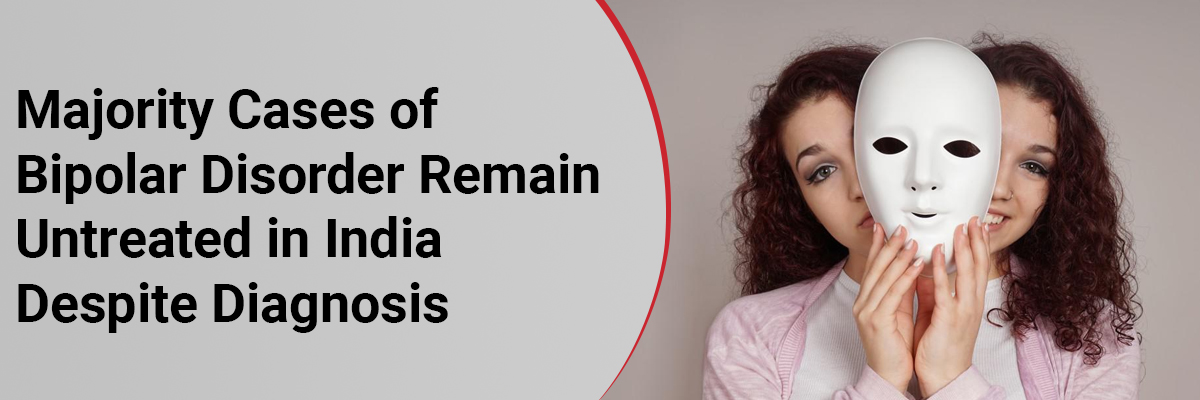
 IJCP Editorial Team
IJCP Editorial Team
Majority Cases Of Bipolar Disorder Remain Untreated In India Despite Diagnosis
On Sunday, World Bipolar Day shined a light on an alarming statistic that nearly 80% of people with bipolar disorder are not receiving treatment despite being diagnosed with the condition.
People who have bipolar disorder often experience extreme swings in mood, from episodes of mania to periods of depression. These changes can significantly impact a person's ability to lead a normal life, such as losing a job, having difficulty in relationships, and even considering suicide. In addition, the lack of treatment after diagnosis can lead to long-term complications such as worsening symptoms, hospitalizations, and even death.
Manic episodes associated with bipolar disorder can lead to harmful behaviors such as reckless driving or spending money beyond one's means. Additionally, psychosis symptoms like delusions and hallucinations can make it hard to differentiate bipolar disorder from other mental illnesses, such as schizophrenia.
According to a recent clinical survey, around 0.3 percent of the population suffers from the disorder. However, with the proper medication and therapy, individuals with bipolar disorder can better manage their symptoms and lead healthy, productive lives. This emphasizes the need for greater understanding and education about this serious mental health issue. Additionally, it is vital that those living with bipolar disorder are provided with adequate resources and support to manage their condition.
To address this issue, Vijay Nallawalla, co-founder of Bipolar India, recently hosted a conference attended by more than 100 bipolar patients and their families around India. During the conference, attendees highlighted the need for better diagnosis, access to treatment, and rehabilitation. Sharing their experiences, Arun Singh, who has been living with bipolar disorder for 50 years, states that he has experienced difficulty staying employed due to his condition. He explains that the drastic shifts in mood between mania and depression can be challenging to manage and lead to strained relationships and job instability.
Dr. Milan Balakrishnan acknowledges the difficulty of diagnosing bipolar disorder, noting that the average time between the onset of symptoms and diagnosis is at least ten years and, in some cases, up to 26 years. Bharad, an aspiring therapist, suggests that families should get screened if someone is diagnosed due to the strong genetic connection of bipolar disorder.
Experts are urging for better access to effective treatments, noting that cost, access, adherence, and stigma contribute to a large treatment gap. To improve mental health outcomes, those living with bipolar disorder must have access to medication, therapy, and lifestyle changes that can help reduce the severity of symptoms. Mental health professionals should also be encouraged to diagnose and treat the condition on time, with the ultimate goal of assisting individuals in managing their symptoms and leading healthy and productive lives.

IJCP Editorial Team
Comprising seasoned professionals and experts from the medical field, the IJCP editorial team is dedicated to delivering timely and accurate content and thriving to provide attention-grabbing information for the readers. What sets them apart are their diverse expertise, spanning academia, research, and clinical practice, and their dedication to upholding the highest standards of quality and integrity. With a wealth of experience and a commitment to excellence, the IJCP editorial team strives to provide valuable perspectives, the latest trends, and in-depth analyses across various medical domains, all in a way that keeps you interested and engaged.





















Please login to comment on this article